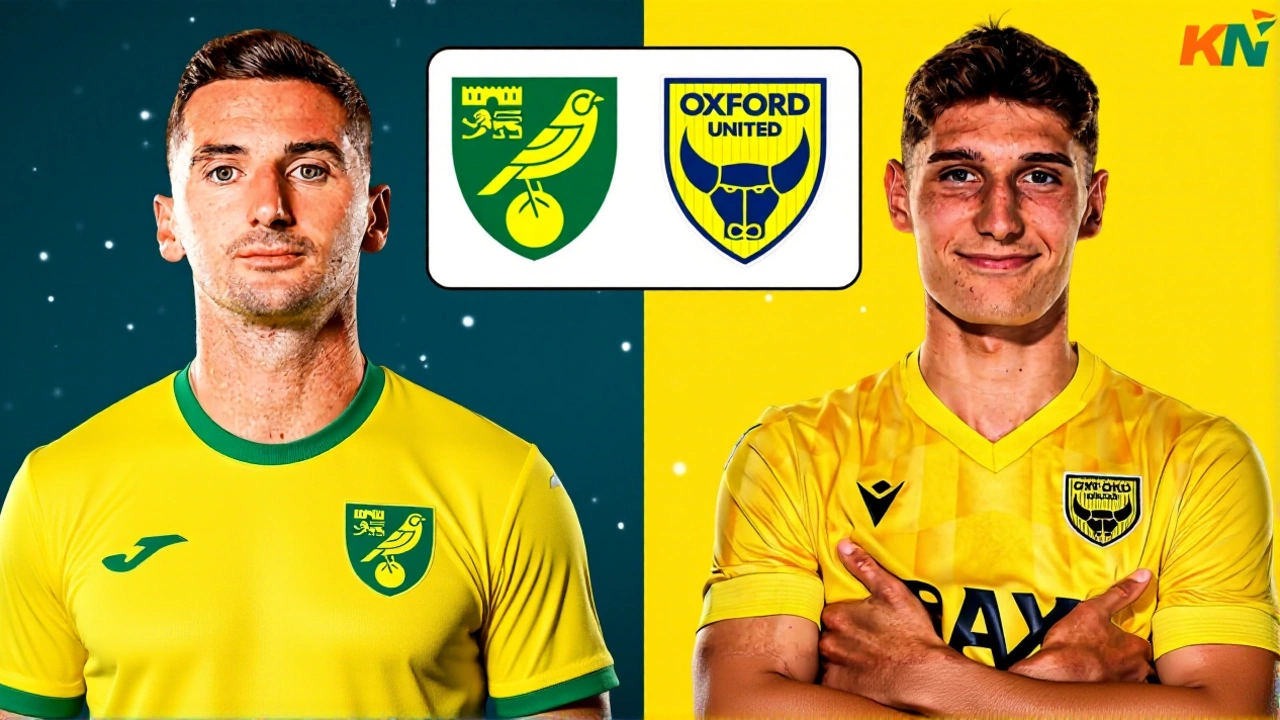When the Championship match between Norwich City and Oxford United ended in a 1-1 draw at Carrow Road on Tuesday, November 25, 2025, it wasn’t just another stalemate—it was a gut punch for a club clinging to hope. Norwich City, newly relegated from the Premier League and now 23rd in the table, watched Filip Krastev equalize in the 95th minute, extending their 26-year winless streak against Oxford United. The final whistle brought groans from the 24,922 fans in attendance, not because of the scoreline, but because of what it meant: another point lost in a fight to avoid the drop.
Pressure Mounts Under Clement’s Brief Tenure
Just five days into his reign, Clement inherited a team in freefall. His predecessor’s final game—a 4-1 thrashing by Birmingham City—left scars. Marvin Ducksch scored twice, Jay Stansfield added another, and Mathias Kvistgaarden’s lone goal for Norwich felt like a footnote. Now, under Clement, the Canaries have won just two of 15 league games this season. Against Oxford, he stuck with the same XI that lost to Birmingham, betting on familiarity over flair. Vladan Kovacevic held goal, while Joshua Sargent, with five league goals this season, led the line alone. But the midfield lacked spark. Kenny McLean, the captain, worked hard but was isolated. The attack had chances—Sargent hit the post in the 37th minute—but no precision.
Oxford’s Grit and the 95th-Minute Miracle
Oxford United, managed by Gary Rowett, arrived in Norwich with 14 points from 16 matches and a reputation for stubbornness. Without captain Cameron Brannagan—out since the Middlesbrough draw—and key players Matt Phillips and Brodie Spencer, Rowett shuffled his deck. Matej Helik wore the armband, Jamie Cumming guarded the net, and Filip Krastev came off the bench at 66 minutes. He was barely on the pitch for 30 minutes when, in the 95th, he pounced on a loose ball after a scramble in the box, slotting it past Kovacevic. It was his first goal in English football. The away end erupted. The home crowd fell silent. The equalizer wasn’t pretty—but it was devastating.
Historical Weight and Relegation Realities
Norwich haven’t beaten Oxford since 1999. That’s 26 years. Twenty-six years of near-misses, bad breaks, and managerial turnover. This wasn’t just about three points—it was about pride. For a club that spent 11 seasons in the Premier League between 2011 and 2025, this descent into the relegation scrap heap feels surreal. Carrow Road, with its 27,000-capacity stands, has seen Champions League nights. Now, it’s witnessing survival battles against teams like Oxford, who themselves are in their second consecutive Championship season after promotion from League One in 2024. Both sides sit in the bottom six. The difference? Norwich have more history, more expectation, and now, more despair.
The Championship’s High-Stakes Grind
This isn’t just any second division. It’s the £200m jackpot league. Promotion to the Premier League means a windfall that can reshape clubs for a decade. Leicester City, Ipswich Town, and Southampton—all recently relegated—are fighting tooth and nail to return. Meanwhile, Sheffield Wednesday and Hull City are in chaos, battling not just on the pitch but off it. Oxford and Norwich? They’re not chasing glory. They’re clinging to existence. With 29 games left, every point is a lifeline. This draw leaves Norwich on 12 points, one behind Oxford’s 14. Two places apart, but separated by only two points. In this league, that’s a hair’s breadth.

What’s Next? The Road to Survival
Clement’s next task? Fixing the midfield. Mirko Topic and Emiliano Marcondes were both subbed off in the second half—signs he knows something’s broken. He’ll need creativity, not just work rate. Oxford, meanwhile, will look to build on Krastev’s breakthrough. Will Vaulks, who replaced Brannagan, showed composure. But their defense, missing Phillips and Spencer, looked vulnerable on the wings. Both teams face tough runs ahead: Norwich host Wrexham next; Oxford travel to Birmingham. A loss in either could be fatal. The Championship doesn’t care about pedigree. It only cares about points.
Why This Matters Beyond the Table
For Norwich fans, this draw wasn’t just disappointing—it was symbolic. The club’s identity is tied to Premier League football. To lose to Oxford, a team that spent most of the last decade in League One, feels like a cultural wound. For Oxford, it’s a statement: they’re not just here to make up the numbers. They’re here to fight. And in a league where relegation means financial ruin, every point is a survival tool. The £200m prize isn’t just money—it’s jobs, youth academies, stadium upgrades, futures.
Frequently Asked Questions
Why is the 1-1 draw so damaging for Norwich City?
Norwich City are 23rd in the Championship with only 12 points from 17 games, just above the relegation zone. A draw against Oxford, a team they haven’t beaten since 1999, extends their winless run and leaves them with zero momentum. With only five wins all season, every dropped point is a step closer to League One—and the financial fallout could cost the club millions in lost TV revenue and sponsorship.
How did Filip Krastev’s goal impact Oxford United’s season?
Krastev’s 95th-minute equalizer gave Oxford United their first point in three games and lifted them to 14 points, pulling them one place above Norwich. It’s his first goal in English football and could be the turning point for a squad that lacked attacking threat. With only two wins this season, moments like this boost morale and prove they can compete under pressure—critical for avoiding relegation.
What’s the significance of the £200m jackpot in the Championship?
Promotion to the Premier League brings an estimated £200 million in TV rights, commercial deals, and matchday revenue. For clubs like Norwich and Oxford, that money can mean the difference between survival and collapse. Relegation to League One typically results in a 60-70% drop in income. That’s why teams fight so hard—even when they’re 21st or 23rd in the table.
Why didn’t Norwich City make more changes at halftime?
Clement stuck with the same XI that lost 4-1 to Birmingham, likely to maintain stability in his first week. But the midfield lacked creativity, and Sargent was left isolated. Substitutions came late—Topic off at 45, Marcondes at 63—and too few to shift momentum. With no new attacking options, Norwich struggled to break down Oxford’s compact 4-3-3, which ultimately cost them the win.
How does Carrow Road’s atmosphere affect Norwich’s performance?
Carrow Road, with its 27,000 capacity, used to be a fortress during Premier League years. Now, with relegation and poor results, attendance is down slightly from capacity, and the mood is tense. The 24,922 fans on Tuesday were louder than usual, desperate for a win. But when Krastev scored, the silence was deafening. That kind of pressure can break teams with little confidence—exactly what Norwich have right now.
Is Gary Rowett under pressure at Oxford United?
Yes. Rowett’s side have only two wins in 16 games and are in the relegation zone. But his record of steady, organized football has kept them above the drop zone so far. The draw against Norwich, especially with a late equalizer, may buy him time. Still, with only 14 points and a tough schedule ahead, another two losses could spark fan unrest. His job isn’t safe—but it’s not over yet.
